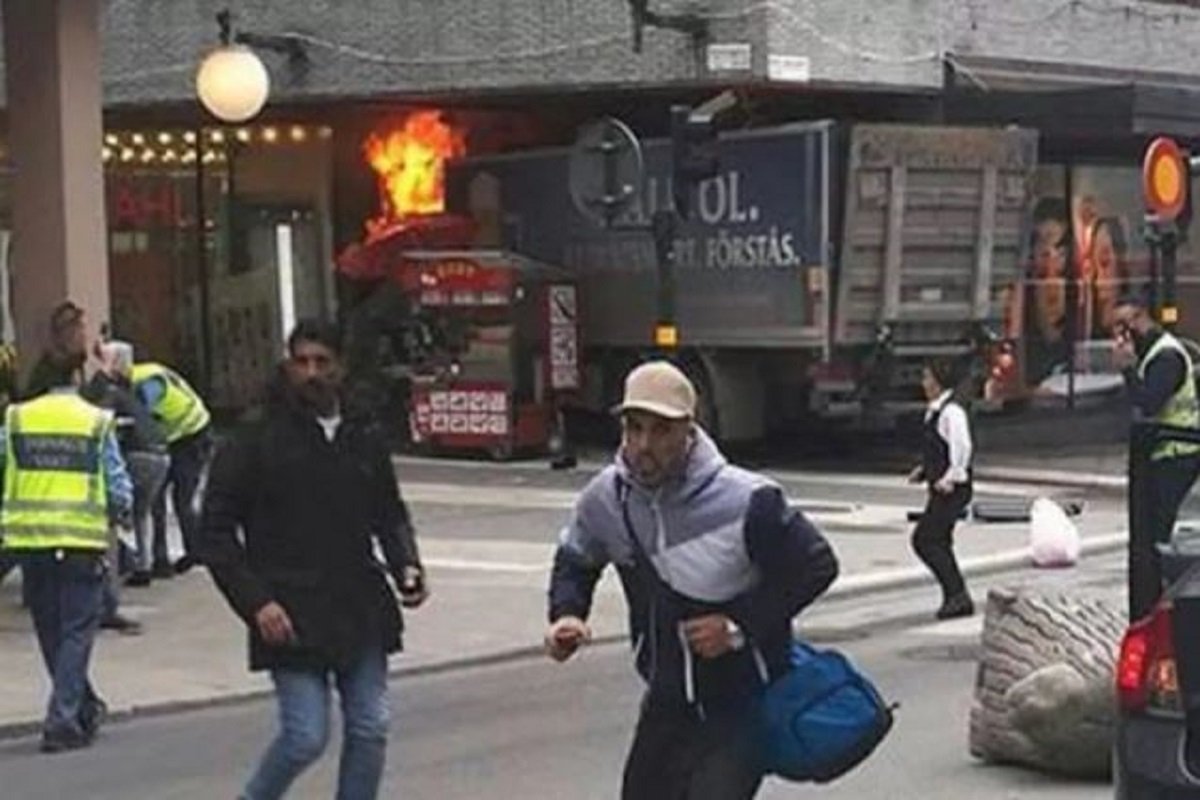
It is reported that the suspects of the most recent terrorist attacks in Stockholm, capital city of Sweden and in Russia’s popular city St. Petersburg were deported by Turkey in 2015. According to the media reports, the Uzbek national suspected of mowing down pedestrians in Stockholm on April 7 was deported from Turkey two years ago while he tried to join the ranks of the Islamic State of Iraq and the Levant (ISIL) jihadist group in Syria.
According to an Uzbek source, the 39-year-old suspect, Rakhmat Akilov, attempted to cross Turkey’s border with Syria in 2015 but was ultimately detained by authorities. “Given his refugee status he was deported back to Sweden,” an unnamed law enforcement source in the Central Asian state said.
Akilov “fell under the influence of emissaries of the Tajik cell of the ISIL, making attempts to take part in combat in Syria on the side of the fighters,” the source said. The source also added that Uzbek authorities had added Akilov to an international wanted list in late February after a criminal case on “religious extremism” was opened against him.
Akilov on April 11 confessed to a “terrorist crime” for the truck attack that killed four people and injured 15 others in Stockholm on April 7. He reportedly said he had received an “order” directly from ISIL to carry out the attack, according to Swedish media reports.
Akilov, a construction worker who had been refused permanent residency in Sweden, was detained several hours after the attack. He had gone underground after his application for Swedish residency was rejected last year, police said.
Meanwhile, a senior Turkish official said Akbarzhon Jalilov, the man Russian police suspect of blowing up a St. Petersburg metro car, entered Turkey in late 2015 and was deported to Russia about a year later because of migration violations.
Speaking with Reuters on condition of anonymity, the Turkish official said on Wednesday that while in Turkey Jalilov “was deemed suspicious due to some connections he had, but no action was taken as he had not done anything illegal and there was no evidence of wrongdoing.”
“However, the issue was not dropped and this person was sent out of Turkey in December 2016 for violating their visa and residency. In the end, a fine was given and they were deported with an entry ban,” the official said.
The terrorist attack on the St. Petersburg metro took place while Russian President Vladimir Putin was visiting the city on April 3, killing 14 people, including the bomber himself, and injuring dozens.
Jalilov, a Russian citizen who was born in Kyrgyzstan, revealed no outward signs of radicalism, his acquaintances said, and no evidence has emerged that he belonged to any established militant groups.
Ibrahim El Bakraoui, one of the attackers in the Brussels suicide bombings last year, was also deported from Turkey in 2015 while attempting to cross the border into Syria.
Turkey’s autocratic President Recep Tayyip Erdoğan’s threatening statement on March 21 had drew reactions from European capitals. President Erdoğan had stated that “Europeans will not be able to safely walk on the streets if they persist in their attitude against Turkey.” Speaking during a meeting of the Anatolian Publishers Association in Ankara, Erdoğan had said, “Turkey is not a country you can push around, not a country whose citizens you can drag on the ground.”
He was referring to Dutch police who forcefully dispersed Turkish demonstrators in Rotterdam on March 11 following the expulsion from the country of Turkish Minister of Family and Social Policy Fatma Betül Sayan Kaya after she was prevented from holding a campaign rally at the Turkish Consulate General residence in Rotterdam.
“If Europe continues this way, no European in any part of the world can safely walk on the streets. Europe will be damaged by this. We, as Turkey, call on Europe to respect human rights and democracy,” he had said.
Turkey’s relations with various European countries have recently become strained due to the cancellation of rallies planned to be attended by Turkish ministers in order to seek the support of Turkish expatriates for a referendum in Turkey on April 16 that will expand Erdoğan’s powers and change Turkey into an executive presidency.
The European Commission had summoned Turkish ambassador to the European Union (EU) following remarks made by Erdoğan that Europeans will not be able to safely walk on the streets if they persist in their attitude against Turkey. The commission reportedly expected an explanation of Erdoğan’s sharp remarks against the West.
April 13, 2017















